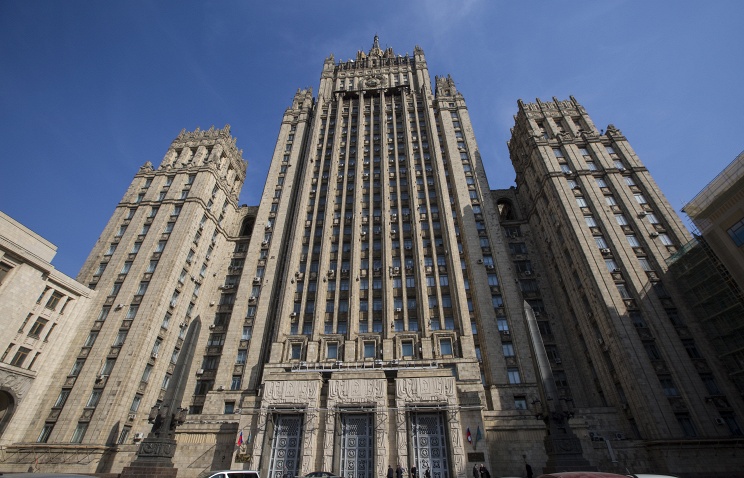
Visits to Crimea by the Russian leadership are Russia’s internal affair, and Moscow is perplexed over Ukraine’s demarche in response to such a visit, the Russian Foreign Ministry said Tuesday.
“We have sent Ukraine’s Foreign Ministry a response note in which we expressed our perplexity over Kiev’s demarche and reminded the Ukrainian side that the Republic of Crimea and the federal city of Sevastopol are an integral part of the Russian Federation, which are fully covered by its sovereignty and where Russian laws are effective,” the ministry said in a statement.
“Visits by Russian officials to the Republic of Crimea and Sevastopol are the Russian Federation’s purely internal affair,” the statement said.
On August 17, Ukraine’s Foreign Ministry sent a note to Russia’s Foreign Ministry “trying to once again contest the legality of a visit these days to the Russian Federation’s Republic of Crimea by representatives of Russia’s top political leadership,” the ministry said.
Crimea’s reunification with Russia
The Republic of Crimea and Sevastopol, a city with a special status on the Crimean Peninsula, where most residents are Russians, refused to recognize the legitimacy of authorities brought to power amid riots during a coup in Ukraine in February 2014.
Crimea and Sevastopol adopted declarations of independence on March 11, 2014. They held a referendum on March 16, 2014, in which 96.77% of Crimeans and 95.6% of Sevastopol voters chose to secede from Ukraine and join the Russian Federation. Russian President Vladimir Putin signed the reunification deals March 18, 2014.
Despite Moscow’s repeated statements that the Crimean referendum on secession from Ukraine was in line with the international law and the UN Charter and in conformity with the precedent set by Kosovo’s secession from Serbia in 2008, the West and Kiev have refused to recognize the legality of Crimea’s reunification with Russia.
Crimea had joined the Russian Empire in 1783, when it was conquered by Russian Empress Catherine the Great.
In the Soviet Union, Crimea used to be part of Russia until 1954, when Nikita Khrushchev, the first secretary of the USSR’s Communist Party, transferred it to Ukraine’s jurisdiction as a gift.
With the collapse of the Soviet Union in 1991, Crimea became part of newly independent Ukraine and remained in that capacity until March 2014, when it reunified with Russia after some 60 years as part of Ukraine.
According to the Crimean and Ukrainian statistics bodies, as of early 2014, Crimea had a population of 1,959,000 people; Sevastopol has a population of 384,000 people.
Work to integrate the Crimean Peninsula into Russia’s economic, financial, credit, legal, state power, military conscription and infrastructure systems has been actively underway since Crimea acceded to the Russian Federation.